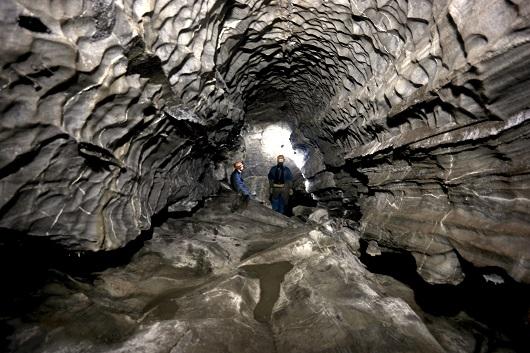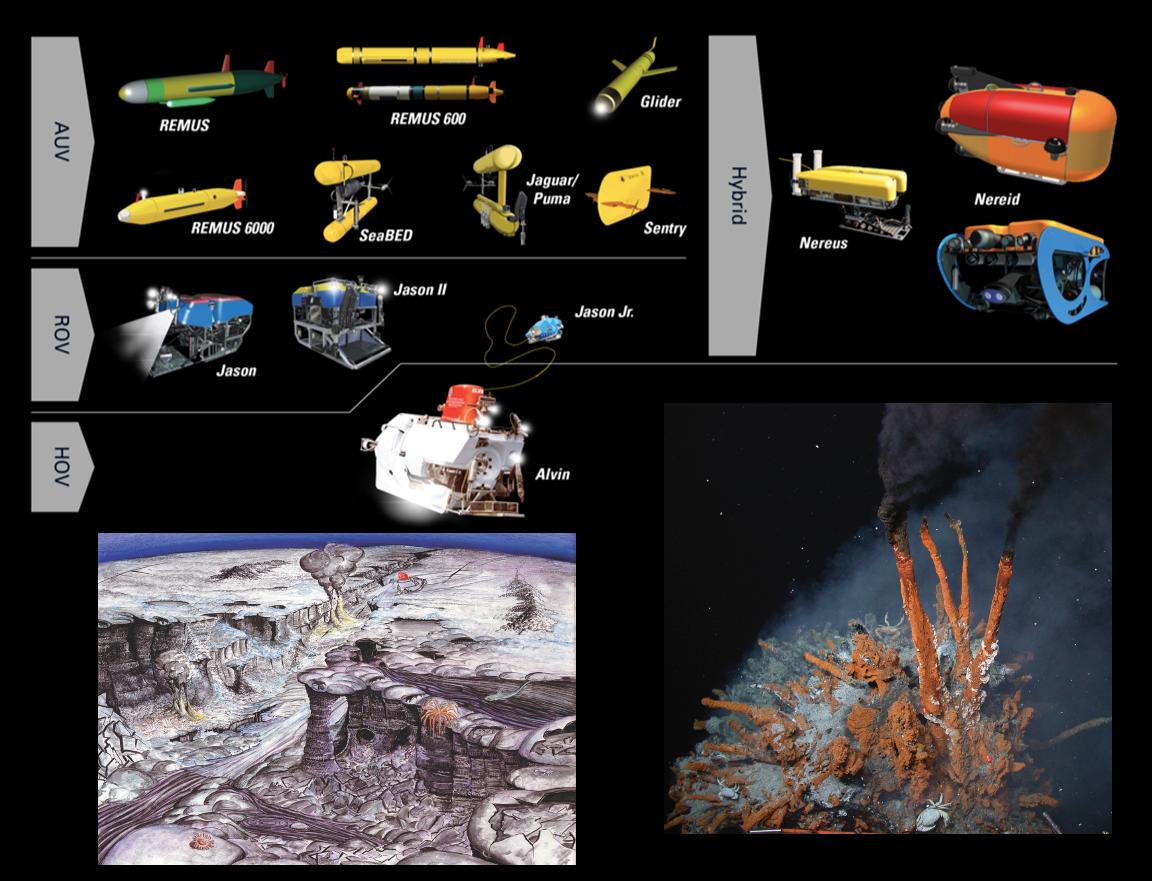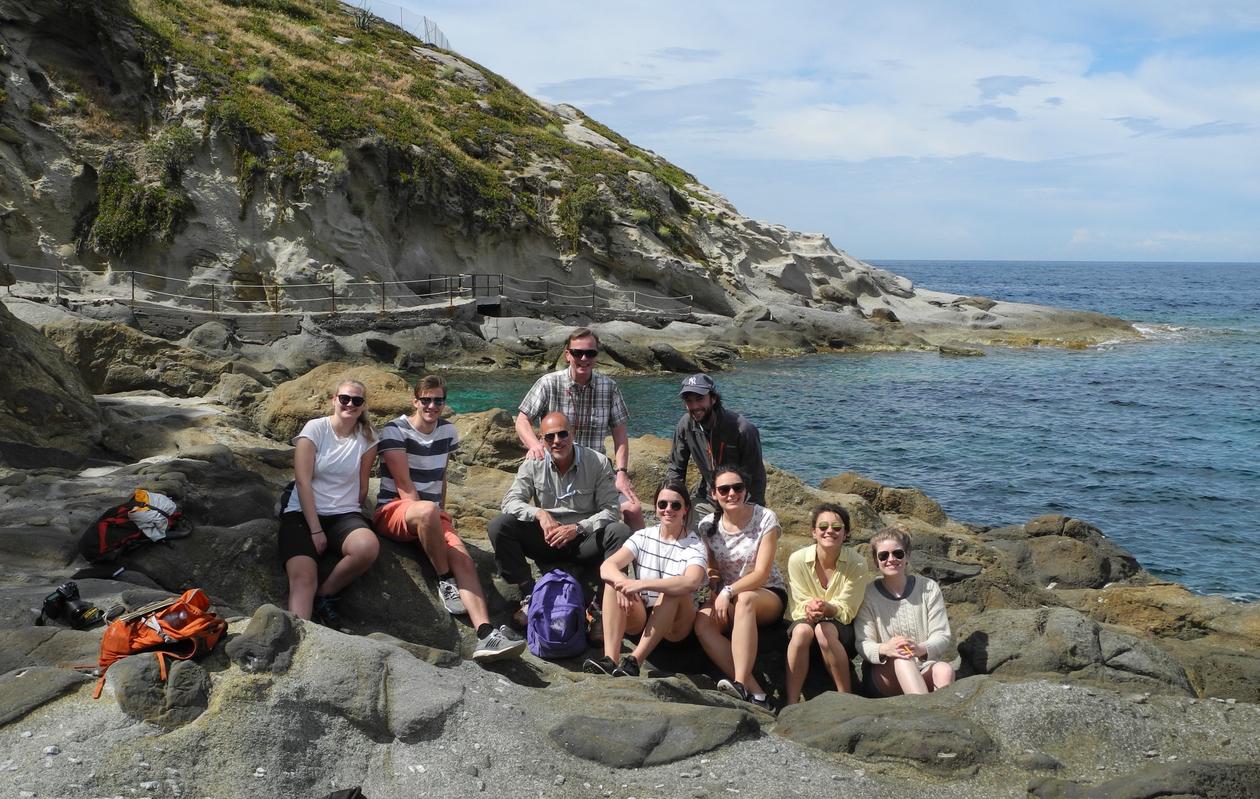Research at Department of Earth Science (GEO)
Department of Earth Science (GEO)'s overall goal is to develop new knowledge of the Earth's structure, formation history and the driving forces for its dynamic behavior.
Main content
The research activities at the department of Earth Science (GEO) are concentrated in thematic groups;
Research group and leaders:
Quaternary geology and Paleo Climate
We work with different geological processes that have occurred during the last millions years. This includes the study of marine sediments, carbonate and sediment deposits in caves, lake sediments and other deposits on the Earth’s surface. Some of this research include process studies, while others are directed towards reconstructing climate change backwards in time and to understand how past climate has varied. The research group has several major projects with focus in, and around, the North Atlantic and the group has also projects in both polar regions, in the Himalayas, and in Russia. We have access to several research vessels, advanced coring equipment for both marine and terrestrial sediments and we have several advanced laboratories, for example Uranium-series laboratory, laboratory for cosmogenic nuclides, and a national infrastructure for sediment analyses, EARTHLAB. The aim of our research and teaching activities is to develop methods and techniques to better understand the geological history mainly during the ice age period (last 2.6 million years) and transfer this to palaeoclimatic reconstructions and increased process understanding.
Research group Leader: Ulysses Ninnemann, Deputy: Nele Meckler. Link to the research group: Quaternary geology and Paleo Climate
Geochemistry & Geobiology
The Geochemistry and Geobiology research group investigates the interactions between geological and biological processes on Earth. We study magmatic, hydrothermal, geochemical and biological processes in modern and ancient geological time, in environments ranging from deep marine sediments to high-temperature seafloor hot springs.
Researchers from the Geochemistry and Geobiology group are part of the Centre for Deep Sea Research. Our research focuses on six main topics and is tightly connected to the work packages of the K.G. Jebsen Centre.
Ultra-slow spreading ridgesArctic hydrothermal ventsSeafloor mineral resourcesHydrothermal experimentsDeep marine sedimentsEarth system evolution
We have state-of-the-art facilities in analytical geochemistry and marine technology to our availability to support our research, including the research vessel G.O. Sars and the working class ROV Ægir 6000. Read more under the research tab.
We are also responsible for BSc and MSc courses in mineralogy, geochemistry, geobiology, petrology and geomicrobiology.
Research group Leader: Steffen Leth Jørgensen, Deputy: Bjarte Hannisdal. Link to the research group: Geochemistry & Geobiology
Geodynamics and Basin Studies
The Geodynamics and Basin Studies research group studies geological processes and Earth dynamics, and the geometry and evolution of sedimentary basins. Through a combination of geological and geophysical approaches, we map Earth's crust and reconstruct prehistoric landscapes to increase our understanding of geological processes. The academic staff in our group have expertise in sedimentology, marine geology, structural geology, tectonics, geodynamic modelling, geochronology and geophysics.
Research group Leader: Ritske Huismans, Deputy: Berit Oline B. Hjelstuen. Link to the research group: Geodynamics and Basin Studies
Geophysics
Geophysics is the study of the Earth’s physics and structure using mathematical and physical methods.
In the Geophysics Research Group, we use geophysical data and methods for mapping and understanding processes shaping the Earth. Geophysical data are invaluable for locating natural resources in the subsurface, mapping the consequences of climate change, monitoring CO2 deposits, and assessing the risk for geohazards such as earthquakes, tsunamis, and landslides.
The research group is actively involved in numerous projects within earthquake research, geophysical mapping, and the development of algorithms for better imaging of the subsurface.
Research group Leader: Mathilde B. Sørensen, Deputy: Einar Iversen. Link to the research group: Geophysics
What are we researching?
At department of Earth Science, we research a number of different geoscientific tipics. The strategic focus areas for our research are Energy, Resources, Climate, Environment and Geo Hazards.
Research infrastructure - read here
National infrastructure - read here
The department of Earth Science is partner in:
- Bjerknes Centre for Climate Research/Centre for Climate Dynamics (SKD)
- Centre for deep sea research (JC-DeepSea)
- Bjerknes Centre for Climate Research (UiB /tidligere SFF)
- SapienCE (SFF/UiB)
- DigiWells – Digitalize, Drill, Geosteer (SFI/NORCE)
- Norsk senter for Geothermal Energi (NORCE)
- VISTA Centre for Modelling of Coupled Subsurface Dynamics (UiB)
We participate in the following:
- FME (Centre for Environment-Friendly Energy Research)
- CGER (Norwegian Centre for Geothermal Energy Research)
- Ocean
- Climate and energy transition


